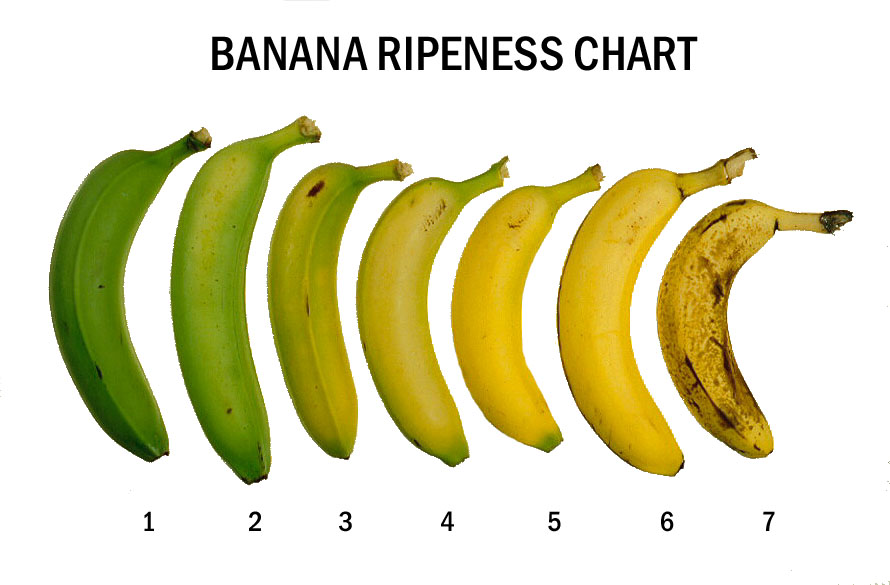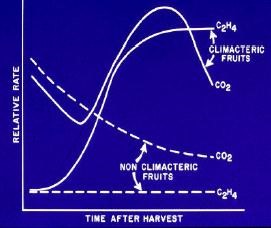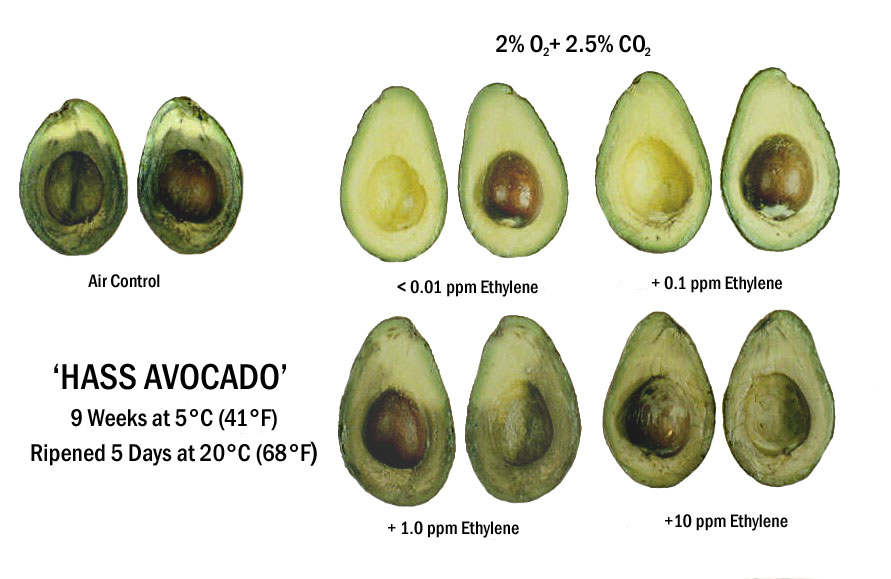About Ethylene Gas
Ethylene (C2H4) is an odorless, colorless gas naturally produced and released by most fresh fruit and vegetables as a ripening agent. Ethylene gas is also an ever-present pollutant resulting from exhaust fumes from internal combustion engines (including propane-powered forklifts), improperly vented greenhouse heaters, industrial waste, etc… Ripening fruit is well known for producing ethylene. However, other plant tissues also produce this gas and can lead to decay and wilting. Even when cut from the growing plant, fruits, vegetables, and flowers are still alive and respiring. Gaseous respiration products of fruits and vegetables, production by normal healthy flower and plant tissue, chopped or damaged leaf tissue, and diseased leaves and tissues can be significant sources of ethylene.
The following methods should be used to ensure that ethylene-sensitive produce is not exposed:
- Ethylene producing items (such as apples, avocados, bananas, melons, peaches, pears, tomatoes…) should be stored separately from ethylene-sensitive ones (broccoli, cabbage, cauliflower, leafy greens, lettuce, etc.). Also, ethylene is emitted by engines. Propane, diesel, and gasoline powered engines all produce ethylene in amounts large enough to cause damage to the ethylene-sensitive produce items mentioned.
- Ventilate the storage area, preferably to the outside of the warehouse, on a continuous or regular basis to purge the air of any ethylene.
- Remove ethylene with ethylene absorbing filters. These have been proven in reducing and maintaining low ethylene levels. If ethylene damage is suspected, a quick and easy way to detect ethylene levels is with hand held sensor tubes. This will indicate if the above steps should be followed.
Ethylene has been scientifically proven to cause:
- Increase in respiration
- Water loss/weight loss
- Yellowing or spotting
- Production of more ethylene
- Accelerated ripening, ageing and decay
- Reduction in nutrient content (e.g. loss of vitamin C)
- Taste and aroma changes, off-flavors such as bitterness
- Loss of leaves and flowers, sprouting, toughening

The Role of Ethylene Gas
Ethylene, also known as the “ripening hormone” plays a regulatory role in many processes of plant growth, development and senescence/decaying. Fruits, vegetables and flowers contain receptors which serve as bonding sites to absorb ethylene molecules. The common practice of placing a kiwi, avocado or banana in a bag to hasten ripening is an example of the action of ethylene on produce: increased levels of ethylene contained within the bag, released by the produce itself, serve as a stimulant to initiate the production of more ethylene. The overall effect is to hasten ripening, aging and eventually spoilage. A refrigerator acts in a similar way: while kept closed to retain the desired temperature, it also enables an increased concentration of built-up ethylene. Any closed environment, such as a truck trailer, reefer container, ships hold or warehouse will have a similar effect.Why Control Ethylene?
The effects of ethylene gas damage is common to us all: shrinkage of fresh produce and flower bulbs; spotting of leafy vegetables and eggplants; yellowing of cucumbers; broccoli and Brussels sprouts; increase odor and sprouting of garlic and onions; wilting of vegetables and cut flowers; scald and loss of crunch in apples; and rind breakdown in citrus fruit. Controlling ethylene levels preserves freshness. Within the industry, it is estimated that losses directly related to ethylene run into billions of dollars annually. As a matter of fact, the average U.S. Family throws away 24lbs. of produce EACH MONTH. Removal of ethylene from the storage and shipping environment delays spoilage, reduces loss and increases profit. Ethylene will penetrate most substances. It will permeate through produce cardboard shipping boxes, wood and even concrete walls.
